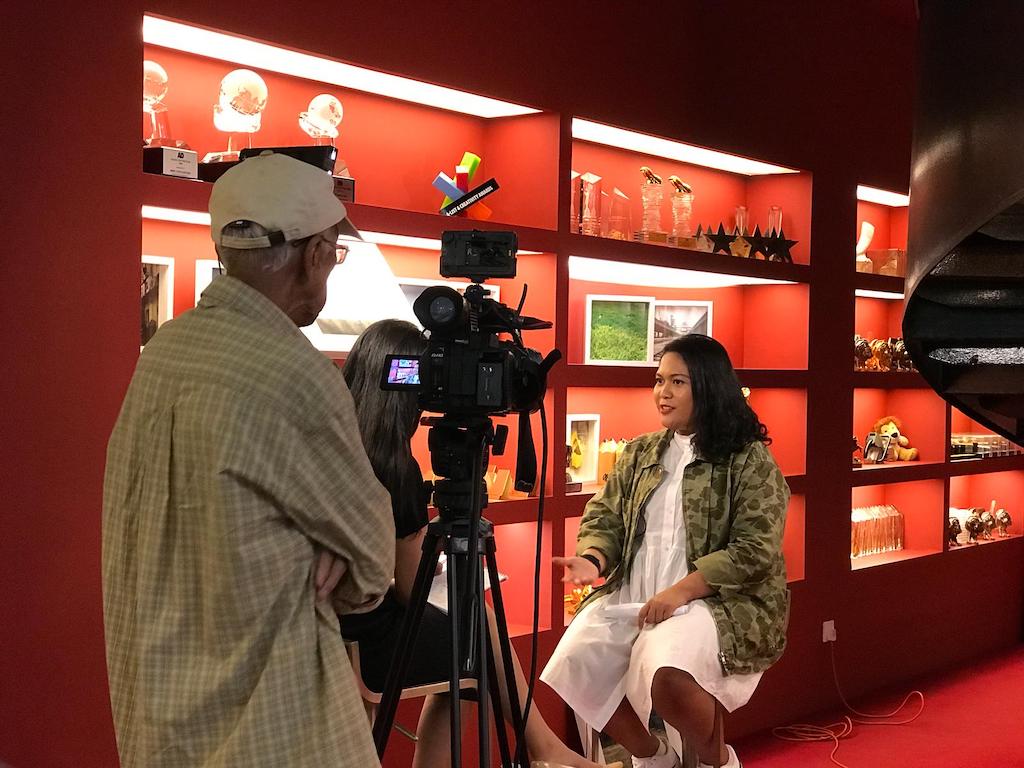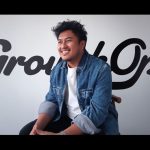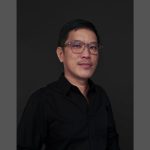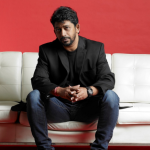By Nicole Lam (All images by Dillah Zakbah)
I left Singapore in 2018 for Los Angeles when I was offered the role of Creative Director of the advertising firm BBH (Bartle Bogle Hegarty). Moving to another country for a job might be common, but seeing as I started my career as a cleaner at a production house, it was the ultimate cherry on top.
I decided to move to LA because I felt like I had reached a point where I’d achieved all my career milestones in Singapore.
What solidified my resolve to move was—even as Singapore does not want to admit it—the racism, sexism, and unconscious biases I encountered in the country. It made it that much more challenging to achieve all that I want to.
It always frustrates me that I have to work two or three times harder in Singapore just to show that I deserve a seat at the table. Even in this day and age of ‘wokeness’, when I walk into a meeting room back in Singapore, people who don’t know who I am will assume that I’m there to take notes or pour the coffee.
Of course, I don’t belittle people who do carry out those duties. After all, I was in their shoes not too long ago.
But when I had the opportunity to lead the entertainment, tech, and advertising wing in the BBH LA office, I saw it as my chance to show everyone, especially girls that look like me, that our ambitions can take us anywhere.
The ‘Lazy’ Malay
I graduated from RMIT in Melbourne with a degree in Design & Communication back in 2007. I returned to Singapore hoping to start as a junior art director in an advertising agency.
That naivete and idealism were soon shattered when I started applying for jobs.
One day, I went for an interview at a local advertising agency (that I shall not name) with my best friend. When she got the job, and I didn’t, she asked the boss why I was not hired. The guy said he doesn’t know whether the company wants to hire someone who is Malay because they don’t know whether we’re going to be lazy or not.
It was like a punch in my stomach. I decided, okay, there were a couple of options I could take here; I could be angry about it and wallow in self-pity, or I could do something about it. It is a huge undertaking, but I thought working doubly hard could change this damaging perception of the ‘lazy Malay’.
I had to find a way to differentiate myself from hundreds of junior art directors. That’s when I decided to work at a production house first.

Since advertising agencies are not hiring me, I will go to a production house and learn how to produce. That way, when I eventually apply for a position at an advertising agency, I would be amongst the very few creative people who also know how to produce.
Started as a Janitor
With renewed vigour, I started knocking on the doors of production houses, asking if they were hiring. The only place that would entertain me said they had a job, but it was cleaning the toilets before their clients came. I said okay, sure.
This was six months after graduating, and I needed to start paying the bills and school loans to lighten the family’s financial burden.
I moved up the ranks from being a cleaner to buying the crew breakfast. I know it’s not much, but I wanted to prove my worth. That as a Malay, I’m not lazy, and I’m willing to work hard. This would then hopefully land me a job that was befitting my creative degree.
I then started dabbling in conceptualising set designs and producing and coming up with ideas. I did that for two years before one of the BBH producers saw me and said, “I like your moxie. I heard you want to be a creative in an ad agency, and we’re hiring.”
The Working Culture in Singapore
I joined BBH in 2009 as a personal assistant, and after a few months, I became a creative maker and was chosen to be BBH Singapore’s first-ever product manager. In this role, I managed BBH Asia Pacific’s creative innovation department, contributing ideas and designing user experiences.
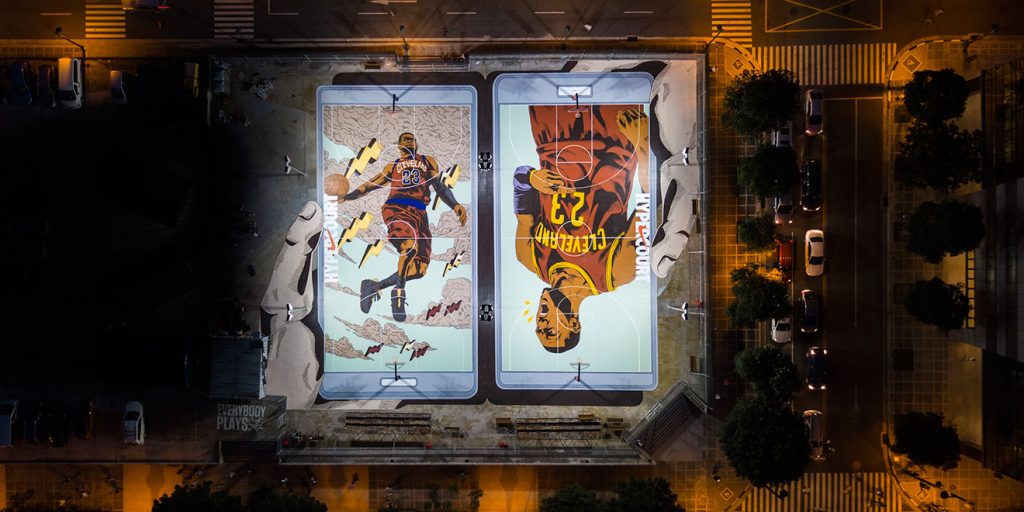
I stayed for another four years till 2013 before I left to start Pie, a workplace chat app that Google bought over in 2014. Then, I went back to BBH for two years to lead and be put in charge of all of their Nike projects.
Extroversion is also more appreciated than introversion. I am very much an introvert and don’t speak for the sake of it. I would turn up when I needed to at work; if not, I’m pretty much extremely shy and reserved.
That’s not to say that outside of Singapore, everything is perfect, but places like LA and London are more conscious of these biases and are more neurodivergent friendly.
Singapore is sort of self-aware and progressive, but it is still lagging behind LA and London. I remember one time in Singapore, I had an intern who was a Caucasian man, and many people assumed he was my boss. Safe to say, Singapore still has miles to go.
Making Great Strides Overseas
I really enjoyed working abroad because in LA and London, I got the due recognition I couldn’t get while working in Singapore.

One incident springs to mind. One of the most significant events in the advertising industry is the Cannes Lions International Festival of Creativity. It is a global event and one of the largest gatherings for those working in creative communications, advertising, and related fields.
When I was with another Singapore media company as a creative technologist from 2014 to 2016, I won two Silver Lions in the media category for Netflix’s “You Know the Queen. Now Meet Elizabeth”, which was undoubtedly an achievement.
However, even with such a prestigious win, the company never thought to put me up as a juror (where I could judge the advertising entries) to represent Singapore. In contrast, after only a few months in Los Angeles, the US advertising committee recognised my efforts and then pushed me to be a judge.
In London, I was made a partner in less than a year.
L.A. and London validated me in a way that Singapore couldn’t. There, I was not a Malay woman; I was just an immigrant. Living and working abroad also made me realise that many things that happened to me had nothing to do with me. I’m very much a product of my environment.
Now that I have an actual seat at the table, I want to ensure that other women and minority women of colour like me know they are more than what their environment makes them out to be. I know that Singapore is getting better, but when I decided to move, it wasn’t the case yet.
US vs UK
Still, life abroad was not all peaches and cream. The rampant gun violence and racism that plagued America were always a concern for my parents and me. Thankfully, I realised that most of what I’m afraid of is not everyday living. I was privileged enough to have lived in a good neighbourhood, so it was relatively safe.
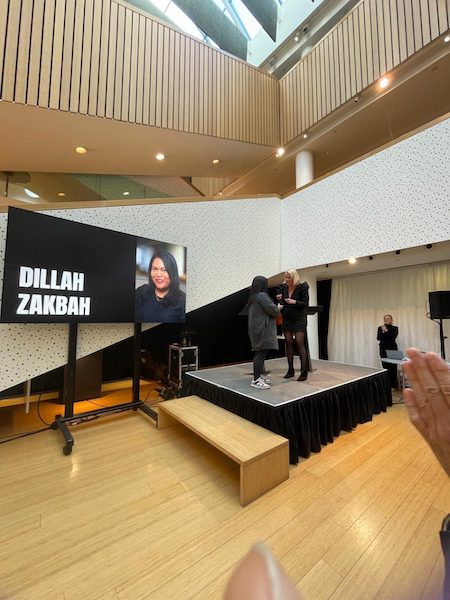
Only after living abroad do you realise how seamless and efficient everything is in Singapore. For instance, LA might sound glamorous, but you pay very high taxes, so you probably only bring back 60 per cent of your salary after taxes. The cost of living is high, food prices are exorbitant, and public transportation is non-existent in Los Angeles.
Still, America was not as big an adjustment for me because we consume so much of their media, so the assimilation was a little easier.
Then, I moved to the UK. Unlike in America, the people in the UK are not as straightforward; they are either too polite or sarcastic. I don’t think I encountered racism there. Instead, I noticed instances of classism between the upper class and the working class.
The first few months of moving to London were tiring because people were less direct or forthcoming with their feedback. It was difficult to adjust to their subtle nuances, but I told myself I had to be a sponge and absorb as much as possible to truly understand the culture.
As somebody who works in advertising, immersing yourself in the culture you’re marketing to is crucial to your ad campaign’s success.
In Singapore, it is so small that if you’re talking about something to somebody in Geylang, someone who lives in Yishun will get it.
It’s different in both America and the UK. Everyone has different belief systems—from politics to religion and virtually everything else. Creating an effective ad campaign that would appeal to everyone is one of the challenges of my job.
But, in terms of sexism, racism, and being considerate of one’s faith, I find it much easier to be myself overseas than in Singapore. In all my time working abroad, nobody asked me why I don’t drink or why I don’t do certain things.
In multicultural Singapore, you think that people would be more sensitive and more aware of these differences. Yet, people would still goad me, a Muslim woman, to have a sip of wine or chug a beer.
Still Much To Love
Still, there are many things to love about Singapore—the transport system, food, safety, our government, our infrastructure, my friends, and my parents. Singapore is 100 percent my home; that’s what I tell people when they ask me.
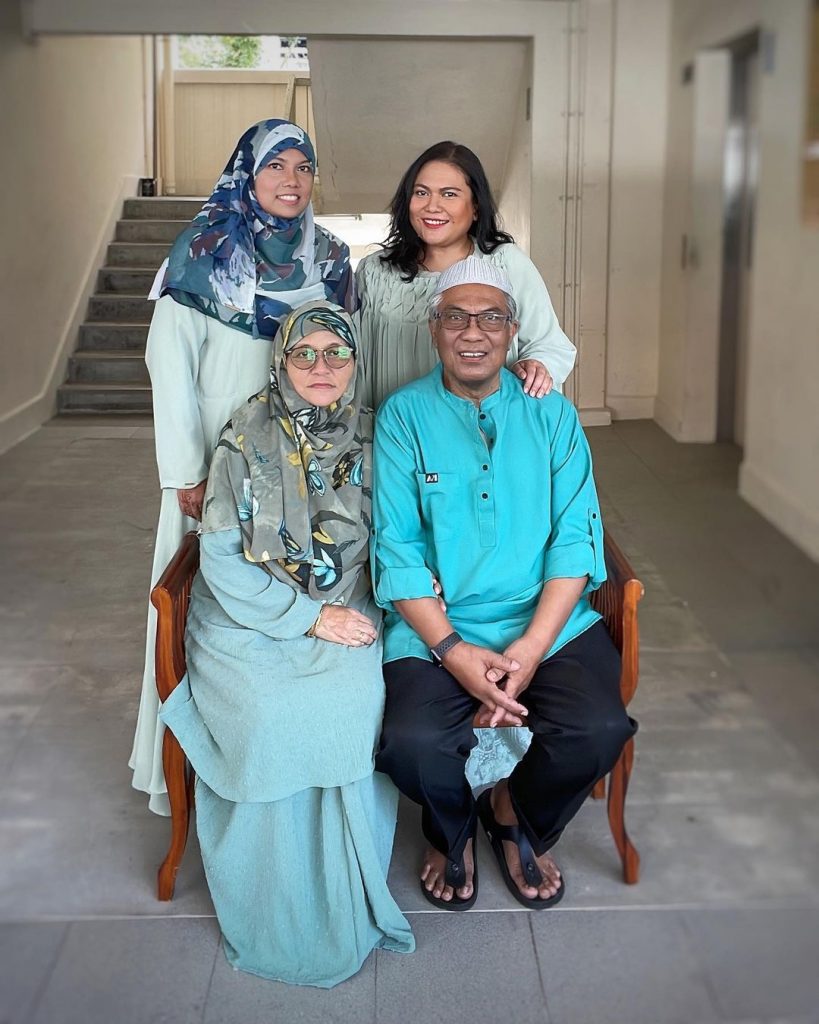
I wouldn’t be the person I am without the challenges I faced back there. Without it, I would not have the tenacity or grit that paved the way to where I am today.
All those experiences, the good, the bad, and the really ugly, helped me professionally and shaped my perspective in a way that helped me advance my career. So I’m thankful to Singapore for that. I know Singapore is changing, and I hope that one day when I return, I can create a workplace where my employees can be their true selves.
This article was first published on RICE
MARKETING Magazine is not responsible for the content of external sites.

